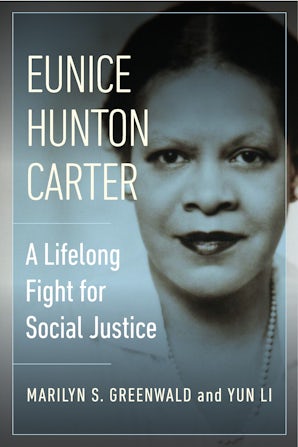Who was Eunice Hunton Carter?
By Kate O'Brien-Nicholson
30th January 2021
When Eunice Hunton Carter graduated from Fordham Law School in 1932 and passed the bar a year later, she became one of the few Black women attorneys in the country. Before that, she was one of only a handful of Black students to have graduated from Smith College.
But Carter’s accomplishments then were just the beginning of a life that spanned many “firsts” – and the start of a career that shaped her as a role model for many Black people and woman who would come after her.
Four years after she earned her law degree, Carter’s diligence and legal ability propelled her to the front pages of New York’s newspapers. She built the case against the mob by making the link between organized crime and prostitution, thus ensuring the prosecution of the notorious Lucky Luciano. Carter was one of 20 attorneys who served on a gang-busting team handpicked by Special Prosecutor Thomas E. Dewey. Carter was the only Black person on the team – and the only woman. She was also at the time New York’s first Black woman prosecutor.
More than eight decades later, another Black woman attorney is making history, as Senator Kamala Harris, a former California attorney general, was elected as the nation’s first woman vice president. Eunice Hunton Carter always understood the value of being “first” – especially for women and
racial minorities. She knew that role models were absolutely vital because they served as rare beacons of accomplishment for many people who historically had few. And because they held power, they had tremendous influence on others.
After the mob trial, Carter was promoted within the district attorney’s office, where she worked for ten years before entering private practice and becoming a leader in several national and international social justice causes. She spent the rest of her life working as a community organizer and role model to many in her home of Harlem, and a legal advisor to the United Nations, the National Council of Negro Women and many other organizations. Carter was 26 years old when she wrote that “the pioneer in anything significant occupies…an exalted position while a large portion of the race indulges in a mild form of hero worship. These
achievements are the pride of the race; the business of reaching new heights is taken very seriously. Each is a milestone on the road of progress which leads to the goal of unrestricted opportunity.”
Still, it remains a slow climb for women in the male-dominated world of law, so the stories of attorneys like Carter, Harris, Ruth Bader Ginsburg, civil rights activist Pauli Murray and others should be told. Thirty-eight percent of the attorneys in this country are women, according to the
2016 American Community Survey. And they earn less on average than their male counterparts. The top 10 percent of female attorneys earn $300,000 or more; the top 10 percent of male attorneys earn $500,000 or more.
During Carter’s era, the climb was even steeper. Even some aspects of a profession like law were considered “women’s work” during her era. In 1947, roughly 8,000 women in the United States were attorneys, according to a story about women attorneys that year in Ebony magazine. Their
specialties tended toward activities such as writing briefs, acting as children’s guardians and serving as assistants on cases. “Judges inevitably pass over women jurists when appointing commissioners, masters and receivers,” the story said.
Predictably, Black women lawyers had it tougher. In 1950, only 83 Black women were lawyers in this country, compared to nearly 7,000 White women and 174,000 men, according to the 1998 book Rebels in Law. Until the mid 1930s, the main source of legal education for Blacks was Howard University because many other law schools, especially in the South, prohibited admission of Black students. It was only through the activism of attorney Charles H. Houston and future U.S Supreme Court Justice Thurgood Marshall that predominantly White law schools opened their doors to Black students.
Like Carter vice president Harris realizes the vital importance of paving the way for others.
“While I may be the first woman in this position,” Kamala Harris said in her post-election speech. “I won’t be the last.
Written by Marilyn Greenwald
Available for Pre-Order Now on Amazon!
To learn more about Carter’s extraordinary journey, check out these articles detailing her life and experiences! https://www.blackpast.org/african-american-history/eunice-hunton-carter-1899-1970/ http://legalhistoryblog.blogspot.com/2020/12/eunice-hunton-carter-1899-1970.html

